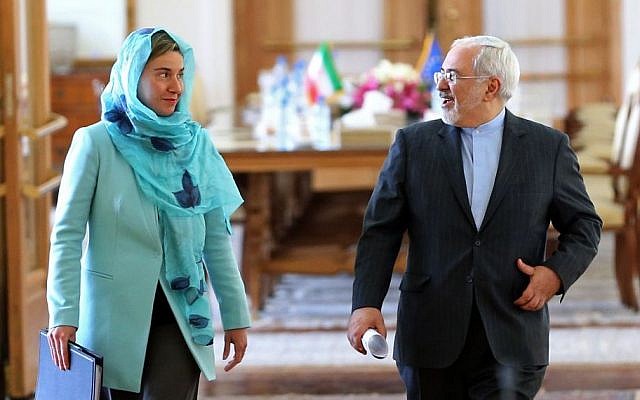 Polski cud różańcowy. O ważnej książce Leociaka
Polski cud różańcowy. O ważnej książce Leociaka
JAKUB BERSKI
 Jacek Leociak. „Młyny boże. Zapiski o Kościele i Zagładzie”. Wyd. Czarne 2018 /fot. Chidusz
Jacek Leociak. „Młyny boże. Zapiski o Kościele i Zagładzie”. Wyd. Czarne 2018 /fot. Chidusz
MŁYNY BOŻE TO POZYCJA OBOWIĄZKOWA, JEDNA Z NAJWAŻNIEJSZYCH KSIĄŻEK, JAKIE OSTATNIO POJAWIŁY SIĘ W POLSCE.
Wydawnictwo Czarne wydało tworzone latami zapiski Jacka Leociaka na temat stosunku Kościołów chrześcijańskich do Zagłady. Ten niewielki zbiór krótkich historii to nie tylko przerażająca opowieść o milczących przywódcach tych Kościołów, ale i smutny obraz rozdźwięku pomiędzy wiarą a codziennym życiem, wyznawaną religią i uprawianą polityką, między wartością życia chrześcijanina i Żyda. Ale te młyny są boże również dlatego, że dwudziestowieczny antysemityzm ma swoją długą, europejską tradycję antyżydowską, nierozerwalnie związaną z Kościołem.
Książka Leociaka to historia rozdźwięku i obojętności, napisana z mocnym, emocjonalnym zaangażowaniem. Niech za przykład posłuży wojenny cud różańcowy w Garnku.
W skrócie: cały świat się pali, Niemcy mordują miliony, a w Garnku, jako że dzień w dzień odbywa się modlitwa różańcowa przed Najświętszym Sakramentem, nie ginie nikt. Niemcy nawet nie wchodzą do wioski. Powołani do wojska wracają cało. Żadnej tragedii, nieszczęścia żadnego. Koniec historii.
[Na marginesie warto wspomnieć, że początkowo ludzi na modlitwie było niewielu. Dopiero z czasem kościół się zapełnił. Rodzi się pytanie, czy zapełniony kościół w Garnku pomieścił siedem tysięcy mieszkańców? Raczej nie. A jednak nikomu krzywda się nie stała – ani dbającym, ani niedbającym o modlitwę.]
W opisie tego cudu – zauważa Leociak – zapomina się o kilku elementach. Obóz przemysłowej zagłady Żydów Treblinka II znajdował się około osiem kilometrów w linii prostej od Garnka. Akcja likwidacyjna Żydów w tamtej okolicy przebiegała niezwykle brutalnie. Mieszkańcy wsi leżących nieopodal Treblinki opowiadali o ogromnym smrodzie palonych ciał.
Dziedzic wsi oddalonej o sześć kilometrów od Garnka przyznał, że sprzedał Niemcom drewno, które posłużyło do zbudowania komór gazowych. A później objeżdżał odżydzoną okolicę i cieszył się, że jeden okupant sprzątnął z powierzchni ziemi drugiego okupanta. Tego w opisie cudu nie ma. A w parafii Garnek, po sąsiedzku, w pięknym już, niczym niezeszpeconym polskim krajobrazie trwała adoracja Najświętszego Sakramentu. Codziennie przez wszystkie dni okupacji. I w Garnku nikomu nic złego się nie stało. Czy to nie cud prawdziwy?
Zaletą książki jest jej wielowątkowość. Leociak przytacza na przykład życiorys księdza Piwowarczyka, przedwojennego zatwardziałego antysemity, który prowadził na łamach „Głosu Narodu” otwartą walkę z żydostwem. Niby nic nadzwyczajnego, i po nim, i przed nim było takich wielu.
Ale to właśnie Piwowarczyk, na prośbę Sapiehy, stworzył po wojnie „Tygodnik Powszechny”. Przy okazji 150. rocznicy urodzin kardynała, na łamach pisma przypomniano postać Piwowarczyka. I nie padło ani słowo na temat jego poglądów i działalności antysemickiej. Przewrotna to historia, bo przecież od dziesięcioleci „Tygodnik” stara się ratować – otwartą i szczerą debatą – relacje polsko-żydowskie, a jego zasługi w tej kwestii są nie do przecenienia.
Leociak tropi nieobecność słowa na „Ż” zarówno w wojennych i powojennych przemówieniach hierarchów kościelnych na temat Zagłady, jak i tych całkiem współczesnych. Analizuje nie tylko wystąpienia Piusa XI i XII, ale również Jana Pawła II i Benedykta XVI. Przypomina wiele niewygodnych faktów.
Niedługo po tym, jak Hitler został mianowany kanclerzem Trzeciej Rzeszy, naziści zarządzili gwałtowny i pełen przemocy bojkot wszystkiego, co żydowskie. I choć odbił się on szerokim echem w świecie, to niemieckie wspólnoty chrześcijańskie, szczególnie protestanckie, zasadniczo nie zabrały głosu.
W prywatnym liście do Piusa XI za niemieckimi Żydami ujęła się pochodząca z Breslau Edyta Stein. Prosiła, aby papież zainteresował się prześladowaniami i przestrzegała, że milczenie Kościoła znacząco zaszkodzi jego wizerunkowi. Jak zareagował Pius XI na list? Udzielił Stein błogosławieństwa, o które na końcu poprosiła, a dziewięćdziesiąt dziewięć dni później watykański sekretarz stanu Eugenio Pacelli (późniejszy Pius XII) podpisał w jego imieniu konkordat z Trzecią Rzeszą. Obie strony były z umowy zadowolone – konkluduje Leociak – a dramatyczne pytania Stein znalazły w Reichskonkordacie odpowiedź zastępcy Chrystusa na ziemi: okazało się, że to, co dzieje się w Trzeciej Rzeszy, nie jest herezją ani obelgą dla Boga.
Na facebookowym profilu „Chiduszu” do wygrania 3 egzemplarze Młynów bożych od wydawnictwa Czarnego. Zapraszamy do udziału w konkursie!
Zawartość publikowanych artykułów i materiałów nie reprezentuje poglądów ani opinii Reunion’68,
ani też webmastera Blogu Reunion’68, chyba ze jest to wyraźnie zaznaczone.
Twoje uwagi, linki, własne artykuły lub wiadomości prześlij na adres:
webmaster@reunion68.com



